The city breathes. It’s a symphony of concrete and steel, a relentless hum of ambition and innovation. And tucked away in its countless windows, perched on fire escapes, or proudly displayed in sun-drenched corners, there’s another kind of life thriving: the silent, verdant armies of houseplants. From the sprawling Monstera deliciosa that dreams of jungles to the stoic Snake Plant offering silent strength, these botanical companions are more than décor; they are vital pieces of our urban souls. They’re our oxygen, our connection to nature, our quiet confidantes.
But here’s the rub, isn’t it? The same urban hustle that fuels our dreams often leaves us with precious little time, space, or even the sheer know-how to give our leafy friends the lavish care they deserve. We adore them, we nurture them, we scroll through endless Instagram feeds of lush indoor jungles, but when it comes to the nitty-gritty of repotting a root-bound Fiddle Leaf Fig in a tiny apartment, or diagnosing that mysterious leaf spot on a prized Alocasia, we hit a wall. The thought of lugging heavy bags of soil, wrestling a prickly cactus into a new pot on a postage-stamp balcony, or accidentally poisoning our beloved plant with the wrong concoction? It’s enough to send even the most enthusiastic plant parent into a spiral of neglect.
This, my friends, is not just a problem; it’s a colossal, shimmering, green-hued opportunity. This is where you, the visionary entrepreneur, step in. You’re not just offering a service; you’re offering salvation. You’re bringing the tranquil expertise of a botanical sanctuary directly to the chaotic heart of the city. You’re about to launch something truly revolutionary: a highly niche mobile plant care and repotting service for urban dwellers.
This isn’t about being a casual gardener with a spare trowel. This is about precision, passion, and profit. We’re going beyond the basics, diving deep into the fertile soil of market demand, operational excellence, and brand cultivation. Prepare to transform your love for green into a thriving, indispensable empire.
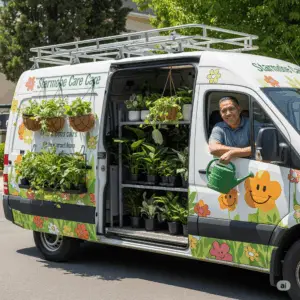
Why NOW? The Urban Plant Renaissance & The Pain Points You’re Solving
Let’s talk market validation. This isn’t a whimsical idea; it’s a response to a booming trend. The houseplant market has exploded, particularly in urban centers. Why? Several compelling reasons:
- Biophilia & Mental Wellness: In concrete jungles, humans instinctively crave connection to nature. Plants reduce stress, improve air quality, and boost mood. They are living, breathing companions in increasingly isolated times.
- Millennial & Gen Z Demographics: This demographic has embraced plant parenthood with zeal. Often delaying traditional milestones like homeownership or children, they pour their nurturing energy into plants. They’re also digitally savvy and comfortable with on-demand services.
- Space Constraints: Urban living means smaller spaces. Apartments, condos, and even shared living situations often lack dedicated outdoor areas or even a garage for messy plant tasks. Repotting a large plant becomes a logistical nightmare.
- Knowledge Gap: While enthusiasm abounds, deep botanical knowledge often doesn’t. New plant parents are overwhelmed by conflicting advice, specific soil needs, pest identification, and proper watering techniques. They seek expert guidance.
- Time Poverty: Busy urban professionals, parents, and creatives simply don’t have the hours to dedicate to intricate plant care or the research required to master it. Convenience is king.
- Investment Protection: Many urban plant parents invest significant money in rare or expensive plants. They want to protect this investment with professional care, reducing the risk of damage or loss during critical tasks like repotting.
- Physical Limitations: For elderly individuals, those with disabilities, or simply anyone struggling with heavy lifting, moving large plants or bags of soil is a genuine physical barrier.
Think about your ideal client:
The Busy Professional: Works 60+ hours a week, travels often, loves their plants but struggles to keep them alive.
The Apartment Dweller: No backyard, limited space, horrified by the thought of tracking soil through their pristine living room.
The New Plant Parent: Enthusiasm in spades, but constantly Googling “why are my Monstera leaves yellowing?”
The Collector: Has rare, expensive plants and wants expert hands to handle their precious specimens.
The Interior Design Enthusiast: Wants beautifully styled plants but lacks the time or knowledge for upkeep.
The Vacationer: Needs reliable, intelligent plant care while away, beyond just “watering.”
You are stepping into this vibrant, underserved market, offering not just a service, but peace of mind, expert care, and the gift of thriving greenery.
Defining Your “Highly Niche” within the Niche: The Secret Sauce
The core idea – mobile plant care and repotting – is brilliant. But “highly niche” means diving deeper, differentiating yourself, and becoming the absolute go-to authority for a specific set of needs. This is where you elevate your business from a side hustle to a true green empire.
Let’s dissect the “Highly Niche” layers:

- The “Mobile” Advantage: Your Core Superpower This is non-negotiable. You bring the expertise, tools, and supplies to the client’s home or office. This eliminates their need to transport plants, buy materials, or clean up messes. It’s the ultimate convenience. Your mobile unit becomes a mini-nursery, a specialized plant ER, a botanical styling studio, all arriving at their doorstep.
- Core Services (Your Foundation): On-Site Repotting: This is your bread and butter. You handle everything: Assessing root systems and determining optimal pot size. Selecting and blending appropriate soil mixes (general houseplant, succulent/cactus, aroid, orchid, fern, etc.). Gentle removal, root trimming, and placement. Providing new, appropriately sized pots (either client-provided or you bring options). Thorough clean-up of the workspace. Post-repotting care instructions. Basic Plant Care & Health Checks: Visual inspection for pests, diseases, and nutrient deficiencies. Light pruning for health and shape. Dusting/cleaning leaves. Moisture checks and proper watering demonstrations. Fertilizing recommendations and application. Pest Identification & Treatment: A huge pain point for plant parents. You identify common pests (spider mites, mealybugs, thrips, fungus gnats) and apply safe, effective, often organic treatments. Plant Doctor House Calls: This is distinct from routine care. Clients book you specifically to diagnose a struggling plant and prescribe a recovery plan.
- “Beyond the Basics” Deep Dive: Unearthing Your Micro-Niches This is where you differentiate and command premium pricing. Which of these resonates with your passion and local market needs? The Rare Plant Specialist: This is a goldmine. Focus on high-value, sought-after plants: Aroid Expert: Specializing in Monstera (especially variegated forms), Philodendron, Alocasia, Anthurium. These plants often have specific soil, humidity, and light needs, and their owners are willing to pay for expert care to protect their investment. You understand chunky, airy mixes, sphagnum moss poles, and specific pest vulnerabilities. Hoya/Dischidia Connoisseur: These often require specific hanging solutions, humidity, and substrate. Orchid Whisperer: Re-potting orchids, managing their specific bark/moss media, identifying different orchid types, and troubleshooting re-blooming issues. Carnivorous Plant Guru: Extremely niche but highly specialized care for Sarracenia, Venus Flytraps, Nepenthes, etc., which require distilled water, specific media, and unique feeding methods. The Soil Architect: You don’t just use pre-bagged soil; you custom-blend it on-site or pre-mix it for specific plant families. Offer different aeration components (perlite, pumice, leca, bark), organic matter (worm castings, coco coir), and nutrient amendments. You become the alchemist of the substrate. Plant Styling & Interior Plantscaping: Beyond just care, you help clients arrange their plants for optimal aesthetics and light. This includes: Recommending appropriate pots and stands. Creating vertical gardens or plant walls. Designing terrariums or vivariums (closed or open systems). Suggesting optimal placement for light and humidity. Offering plant sourcing and installation services for new plant parents or redecorating clients. Vacation Plant Concierge (Elevated): This isn’t just a friend watering your plants. You offer a comprehensive service: Thorough check-up before departure. Scheduled visits including watering, misting, humidity checks. Pest watch and immediate intervention. Light adjustment, rotation. Updates via text/photo. Often combined with basic home security checks (mail, lights). Hydroponics/Semi-Hydro Specialist: For the adventurous urban gardener, you offer services for Leca, pon, or passive hydroponic systems. This includes flushing, nutrient application, and transition assistance. Plant Propagation Workshops (Mobile): Offer small, intimate workshops in clients’ homes for them and their friends. Teach basic propagation techniques (cuttings, division, water propagation). You bring the materials and the knowledge, they provide the space and the enthusiasm. Corporate Plant Maintenance: Target small businesses, co-working spaces, cafes, and boutique hotels. Offer recurring weekly/monthly maintenance contracts for their office plants, ensuring a vibrant, welcoming environment for their employees and clients. Zero-Waste/Sustainable Plant Care: Position yourself as the eco-conscious choice. Use only organic pest treatments, offer to compost old soil, recycle old pots, and educate clients on sustainable plant practices.
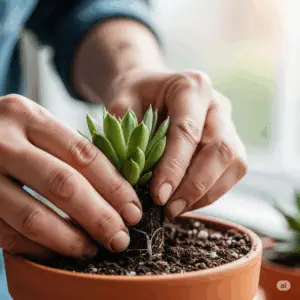
Identifying YOUR Micro-Niche:
Ask yourself:
What types of plants are you most passionate about? Your enthusiasm will be contagious.
What knowledge gaps do you see most frequently in your local plant community?
What local nurseries or suppliers could you partner with for specialized inventory?
What high-income demographics in your city might invest in luxury plant services?
Do you have a unique skill (e.g., carpentry for custom plant stands, photography for stunning before/afters)?
Your niche isn’t just what you offer; it’s who you are as a plant professional. It’s your unique blend of expertise, passion, and target audience.
Operational Deep Dive: The Logistics of a Mobile Green Machine
So, you’ve identified your niche. Now, how do you actually make this mobile dream a reality? This is where the rubber meets the road (and the soil hits the tarp!).
- Your Mobile Command Center (Vehicle): Reliability is paramount: You cannot afford breakdowns. Space: Needs to accommodate bags of soil, pots, tools, and potentially larger plants you might transport. Cleanliness: You’ll be in clients’ homes. Your vehicle should be clean and organized. Consider a removable, washable liner for the cargo area. Branding: Vehicle wraps or magnetic signs are excellent mobile advertising.
- The Mobile Toolkit: Your Green Arsenal: This is your essential gear, meticulously organized and always stocked. Potting Supplies: Soils: Bulk bags of universal potting mix, succulent/cactus mix, orchid bark mix, aroid chunky mix (coco coir, perlite, bark, charcoal). Consider specialized options like peat-free or organic blends. Amendments: Perlite, vermiculite, pumice, leca, horticultural charcoal, sphagnum moss, worm castings, coco coir, slow-release fertilizers. Pots: A selection of common sizes (4-inch to 12-inch) in nursery plastic (for re-potting into decorative pots), or offer decorative pots for purchase. Always have drainage saucers.
Tools:
Hand Trowels/Scoops: Various sizes.
Pruners/Snips: Clean, sharp bypass pruners for foliage and snips for delicate work. Sterilize between clients!
Root Hooks/Chopsticks: For detangling rootbound plants.
Soil Scoops/Funnels: For clean transfer.
Spray Bottles: For water, neem oil mix, leaf shine.
Watering Cans: Small, precise ones.
Dustpan & Brush/Handheld Vacuum: For impeccable cleanup.
Tarps/Drop Cloths: Large, durable, washable, and ideally biodegradable or reusable.
Gloves: Durable gardening gloves and thinner disposable gloves for pest treatment.
Face Masks: For dusty soil or spray applications.
Measuring Tape: For pot sizing, plant height.
Magnifying Glass: For pest identification.
Pest & Disease Control:
Neem oil concentrate, insecticidal soap, rubbing alcohol, cotton swabs.
Sticky traps (for fungus gnats).
Fungicides (organic options preferred).
Microfiber cloths for leaf cleaning.
Miscellaneous:
Paper towels, trash bags (biodegradable).
Client information forms, invoices.
Portable scale (for mixing precise amounts of amendments).
Small folding table (if clients don’t have a suitable workspace).
First aid kit (for you!).
3. Inventory Management & Sourcing:
Wholesale Accounts: Establish relationships with nurseries, soil suppliers, and pot distributors to get bulk pricing.
Just-in-Time Inventory: You don’t need a warehouse. Order supplies as needed, but always have staple items on hand.
Track Usage: Keep a log of what materials you use per job to refine your pricing and stock.
4. Scheduling & Route Optimization:
Booking Software: Invest in scheduling software like Calendly, Acuity Scheduling, or Square Appointments. Allow clients to see your availability, book specific services, and receive automated reminders.
Route Planning: Use Google Maps or dedicated route optimization software to group appointments geographically, minimizing travel time and fuel costs.
Buffer Time: Always schedule buffer time between appointments for travel, unexpected delays, and thorough cleanup.
5. Pricing Strategy: Valuing Your Expertise:
This is critical for profitability and perceived value.
Hourly Rate: A baseline for complex diagnostics or larger projects. For example, $75-$150/hour depending on your city and expertise.
Per-Plant Pricing: For repotting, charge based on pot size or plant height/complexity.
Small (4-6 inch pot): $X
Medium (8-10 inch pot): $Y
Large (12-16 inch pot): $Z
Extra-large (18+ inch pot or floor plants): $A (often requiring two people)
Package Deals:
Repotting Bundle: X number of small, Y medium, Z large plants for a flat fee.
Plant Doctor Visit + Follow-up: Includes initial diagnosis and a revisit to check on progress.
Vacation Care Package: Tiered based on number of plants and visit frequency.
Monthly/Quarterly Maintenance Subscriptions: For corporate clients or serious collectors.
Material Costs: Factor in the cost of soil, amendments, and any pots you supply. You can mark these up or charge them at cost depending on your pricing model.
Travel Fees: Consider a flat travel fee for distances beyond a certain radius, or include it in your hourly rate.
Consultation Fees: Charge for initial plant consultations, even if they don’t immediately lead to a service. Your time and knowledge are valuable.
Luxury Tax: For your highly niche services (e.g., rare plant specialist, custom soil blending), you can command a higher premium.
6. Legal & Insurance: Protecting Your Green Investment:
Do NOT skip this.
Business Registration: Register your business name and structure (sole proprietorship, LLC) with your state/city.
Business Licenses: Obtain any necessary local permits or licenses.
Liability Insurance: This is CRUCIAL. You are working in people’s homes, dealing with potentially valuable plants, and moving heavy objects. General liability insurance protects you if you accidentally damage property, cause an injury, or if a plant declines after your service (even if it’s not your fault, you need to protect yourself from claims).
Contracts/Terms of Service: Have clear terms of service outlining your responsibilities, what you don’t guarantee (e.g., saving a dying plant if it’s too far gone), cancellation policies, and payment terms.
7. Health & Safety Protocols:
Plant Health: Sterilize pruning tools between clients to prevent the spread of pests and diseases.
Home Protection: Use drop cloths, clean up meticulously, and respect client property.
Your Safety: Proper lifting techniques for heavy plants/bags, wear gloves and masks when working with dusty soil or sprays, carry a first aid kit.
COVID-19/General Hygiene: Maintain strict hygiene, wear masks if requested, use hand sanitizer, and be mindful of client comfort.
Marketing & Branding: Cultivating Your Green Empire
You’ve got the skills, the tools, and the strategic pricing. Now, how do you tell the world? Your marketing needs to be as vibrant and captivating as your service.

- Brand Identity: Your Green Persona Name: Catchy, memorable, evokes trust and plant love. (e.g., The Urban Botanist, Root & Bloom Mobile, City Oasis Plant Care). Logo: Professional, clean, incorporating plant motifs. Color Palette: Greens, earth tones, soft whites, or even pops of bright, natural colors. Brand Story: Why did you start this? What’s your passion? What problem do you solve? Authenticity sells.
- Online Presence: Your Digital Greenhouse Professional Website: This is your digital storefront. Clear Services: List every service offered, especially your niche specialties. Pricing/Booking: Provide clear pricing models or a “request a quote” form. Integrate your booking software. Testimonials: Crucial for building trust. Before & After Gallery: Visually stunning plant transformations are your best advertisement. FAQs: Answer common questions about your process, materials, and guarantees. Blog: A content marketing powerhouse. Share plant care tips, seasonal guides, pest solutions, plant profiles. This establishes you as an authority and improves your SEO. Social Media – Visual Storytelling is King! Instagram: Your primary visual platform. High-quality photos of your work: Before/after, close-ups of healthy plants, beautiful plant arrangements. Reels/TikTok: Short, engaging videos of you repotting, diagnosing, showing plant care tips (e.g., “ASMR repotting,” “satisfying leaf cleaning”). Stories: Behind-the-scenes, Q&As, polling for plant problems. Hashtags: #urbanjungle #plantcare #repotting #mobilegardener #cityplants #houseplantcommunity #yourcityplants #rarestplantyoucarefor Pinterest: Great for inspiration boards, plant styling ideas, and linking back to your blog content. Facebook: Build a community page, share local plant group content, run targeted ads. Google My Business (GMB): ABSOLUTELY ESSENTIAL for local businesses. Claim and optimize your listing. Add high-quality photos. Encourage reviews (and respond to them!). Your GMB listing helps you show up in “near me” searches.
- Local Marketing: Rooting in Your Community Partnerships: Local Plant Nurseries/Shops: Offer to be their preferred mobile service provider. They sell plants; you help their customers keep them alive. Cross-promotion is a win-win. Interior Designers/Home Stagers: They often need plants for their projects and ongoing maintenance. Real Estate Agents: A unique selling proposition for new homeowners – offer a “plant care orientation” or a repotting service as a welcome gift. Co-working Spaces/Local Businesses: Offer corporate plant maintenance contracts. Coffee Shops/Boutiques: Offer to maintain their plants in exchange for leaving flyers or business cards. Community Events: Farmers’ Markets/Craft Fairs: Set up a small booth offering mini-consultations, demonstrating repotting techniques, or selling your custom soil blends. Plant Swaps/Sales: Be present, network, offer advice. Referral Programs: Offer discounts or free services to clients who refer new business. Word-of-mouth is incredibly powerful. Local Print/Digital Ads: If your budget allows, consider ads in local community newspapers or online neighborhood forums.
- Content Marketing: Becoming the Go-To Guru Blog Posts: Write engaging articles on topics like: “The Ultimate Guide to Repotting Your Fiddle Leaf Fig” “Decoding Your Plant’s Leaves: What Yellow, Brown, or Drooping Means” “5 Common Houseplant Pests and How to Banish Them Naturally” “Choosing the Right Pot for Your Plant: Beyond Aesthetics” “Seasonal Plant Care: A Winter Survival Guide for Your Indoor Jungle” “The Science of Soil: Why Your Aroid Needs a Chunky Mix” Email Newsletter: Collect emails and send out monthly tips, promotions, and updates. Video Tutorials: Short, actionable “how-to” videos for your website and social media. Your marketing should constantly reinforce your niche expertise, professionalism, and the undeniable convenience you offer.
Client Experience & Relationship Building: The Roots of Loyalty
Beyond the transaction, you’re building relationships. A successful mobile plant service thrives on repeat business and glowing referrals.
- The Initial Consultation: Listen Actively: Understand their plant history, concerns, and goals. Educate: Briefly explain your process, what to expect, and potential outcomes. Manage Expectations: Be honest about the limits of what you can do, especially with very sick plants. Not every plant can be saved, but you can provide the best possible chance. Professionalism: Be punctual, arrive with a clean appearance, and a friendly demeanor.
- On-Site Protocol: The Impeccable Visit Punctuality: Time is money for you and your client. Cleanliness: Lay down your tarps carefully. Work neatly. CLEAN UP EVERY SPEC OF SOIL. Leave the space cleaner than you found it. This is your biggest differentiator from a DIY mess. Communication: Talk to the client about what you’re doing, share insights, and answer questions. Respect for Space: Be mindful of their home, pets, and privacy. Efficiency: Work diligently, but don’t rush. Quality over speed. Photography: Ask permission to take before/after photos for your portfolio.
- Post-Service Follow-up: Care Instructions: Provide written or emailed care instructions specific to the plants you’ve worked on (watering schedule, light needs, post-repotting shock signs). Check-in: A few days to a week later, send a polite email or text checking on the plants’ health and asking if they have any questions. This shows you truly care. Feedback Request: Politely ask for a review or testimonial if they were satisfied.
- Education & Empowerment: You’re not just doing a job; you’re sharing knowledge. Empower clients to better understand their plants. Explain why you’re doing something. This builds trust and positions you as a true expert.
- Personalization: Remember specific plant names, client preferences, or unique stories about their plants. Keep notes in your CRM. Small touches make a huge difference.
- Problem Resolution: If a plant declines post-service (and it happens, plants are living things with many variables), handle it gracefully. Offer a free follow-up visit, provide additional advice, or offer a discount on a future service. Your reputation is paramount.
- Loyalty Programs: Consider a discount for repeat clients, a special offer for booking a follow-up consultation, or a subscription model for ongoing care.
Scaling Your Niche Empire: Beyond Mobile Solo-preneur
Once you’ve mastered the solo operation, the question becomes: how do you grow without sacrificing your niche excellence?
- Hiring & Training: Cultivating Your Team When to Hire: When demand consistently exceeds your capacity, or when you need specialized skills you don’t possess (e.g., someone with deep orchid knowledge if you’re a rare plant specialist). Who to Hire: Passionate plant lovers with a keen eye for detail, excellent customer service skills, and reliability. Training: Develop a comprehensive training program. Your standards for cleanliness, professionalism, plant care techniques, and client interaction must be consistently upheld. Create a detailed manual for all services. Specialization: As you grow, you might hire specialists for different plant groups (e.g., “The Aroid Team,” “The Succulent Squad”).
- Fleet & Geographic Expansion: More Vehicles, More Teams: Once you have a trained team, expand your mobile fleet to cover more ground or serve more clients simultaneously. Expand Service Area: Gradually expand your service radius to capture new neighborhoods or adjacent cities.
- Product Development: Extending Your Brand Custom Soil Blends: Sell your specially formulated, high-quality soil mixes directly to clients or online. Branded Tools/Accessories: Offer your own line of quality potting tools, natural pest sprays, or unique plant accessories. Plant-Specific Fertilizers: Create or curate fertilizers tailored to different plant groups you specialize in.
- Subscription Models: Solidify recurring revenue with monthly, quarterly, or bi-annual plant maintenance contracts. Offer tiered services based on the number of plants or type of care.
- B2B Services: Expanding Beyond Residential Actively target commercial clients: offices, lobbies, restaurants, retail spaces. These often require larger-scale installations and ongoing maintenance, providing stable, higher-value contracts.
- Community Workshops & Educational Series: Host ticketed public workshops on various plant care topics (e.g., “Pest Management Masterclass,” “Advanced Aroid Care”). This positions you as a thought leader and generates additional revenue.
- Franchising/Licensing (Long-Term Vision): If your model is highly refined and scalable, consider developing a franchise or licensing model to expand your brand nationally, allowing others to operate under your successful blueprint. The key to scaling a niche service is to maintain quality, consistency, and your specialized focus. Don’t dilute your brand by trying to be everything to everyone. Double down on what makes you unique.
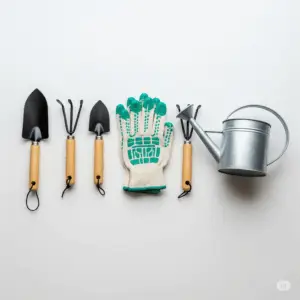
Challenges & How to Overcome Them
No business journey is without its thorns. Anticipating and preparing for challenges is key to thriving.
- Seasonality: Challenge: Plant activity (and thus repotting) slows down in winter. Solution: Lean into winter-specific services: plant diagnostics, pest eradication, indoor humidity solutions, holiday plant care (Poinsettias, Christmas cactus), terrarium creation, and indoor workshops. Offer gift certificates for services.
- Physical Demands: Challenge: Lifting heavy bags of soil, large plants, repetitive kneeling. Solution: Invest in ergonomic tools, proper lifting techniques, a comfortable vehicle, and consider hiring an assistant for very large jobs. Prioritize your health and well-being.
- Unpredictable Environments: Challenge: Every home is different. Varying light, temperature, client expectations, and plant health issues. Solution: Be adaptable. Carry a diverse range of supplies. Conduct thorough pre-service consultations. Manage expectations explicitly.
- Pest Contamination: Challenge: Accidentally spreading pests from one client’s home to another. Solution: Strict hygiene protocols. Sterilize tools between each client. Wear disposable gloves. Clean shoes. Never bring infected plant material into your vehicle. Inspect your own plants regularly!
- Client Expectations & Plant Mortality: Challenge: Clients may have unrealistic expectations about saving a dying plant or expect eternal life for a new plant. Plants are living things; they can decline even with perfect care. Solution: Clear communication from the outset. Explain that you provide optimal conditions, but you cannot guarantee a plant’s survival. Offer follow-up care and advice, but be firm about your liability. Your contract should cover this.
- Competition: Challenge: As the market grows, so will competition. Solution: Double down on your highly niche specialization. Offer unparalleled expertise, customer service, and unique value propositions that competitors can’t match. Continuously innovate your service offerings.
- Sustainability: Challenge: Managing waste (old soil, plastic pots) and sourcing ethical materials. Solution: Offer to compost old soil, recycle old pots (or find local recycling centers that accept them), prioritize organic and peat-free soil mixes, use reusable tarps, and educate clients on eco-friendly practices. Position this as a core value.
The Entrepreneurial Mindset: Cultivating Your Own Growth
Launching and scaling a business, especially one rooted in passion, requires more than just technical skills. It requires a specific mindset:
Passion Meets Pragmatism: Your love for plants fuels you, but your business acumen keeps you profitable. Balance the joy of plants with the realities of operations, finance, and marketing.
Continuous Learning: The plant world is constantly evolving. New hybrids, new care techniques, new pest solutions. Stay curious. Attend workshops, read research, connect with other horticulturists. Apply the same hunger for knowledge to your business skills: marketing, sales, accounting.
Resilience and Adaptability: Not every plant will thrive, not every client will be perfect, not every marketing campaign will hit big. Learn from setbacks, pivot when necessary, and maintain a positive attitude.
Networking: Connect with other small business owners, particularly in complementary industries (florists, nurseries, interior designers). Join local business groups.
Measure Success Holistically: Beyond revenue, track client satisfaction, positive reviews, your impact on the local plant community, and your own personal growth.
Conclusion: Your Green Horizon Awaits
The urban landscape is ripe for innovation, and the burgeoning love affair with houseplants presents an extraordinary opportunity. Launching a highly niche mobile plant care and repotting service isn’t just starting a business; it’s cultivating a vital community, providing a much-needed luxury service, and transforming city living, one flourishing plant at a time.
You’re not just moving soil and pots; you’re bringing tranquility, expertise, and a breath of fresh air into the lives of busy urban dwellers. You’re empowering them to experience the profound joy of a thriving indoor garden, without the stress or the mess.
This is your moment to dig in. To sow the seeds of ambition, nurture them with meticulous planning, and watch as your green empire blossoms. The urban jungle is calling for its expert. Are you ready to answer?
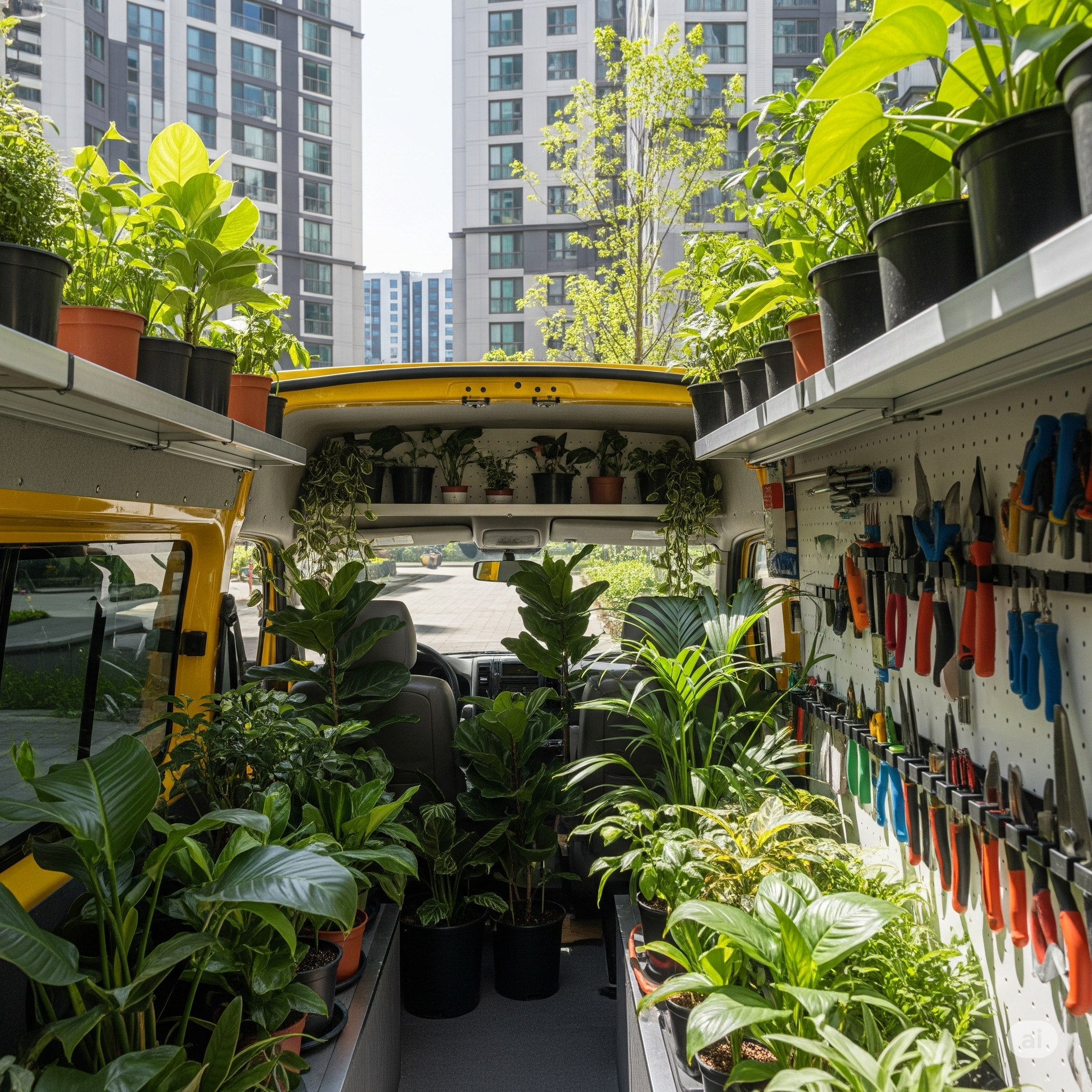
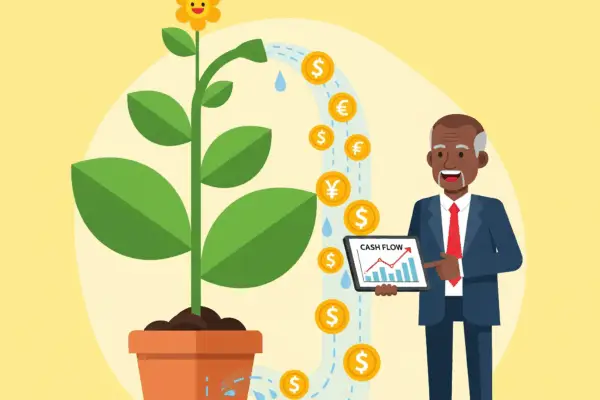
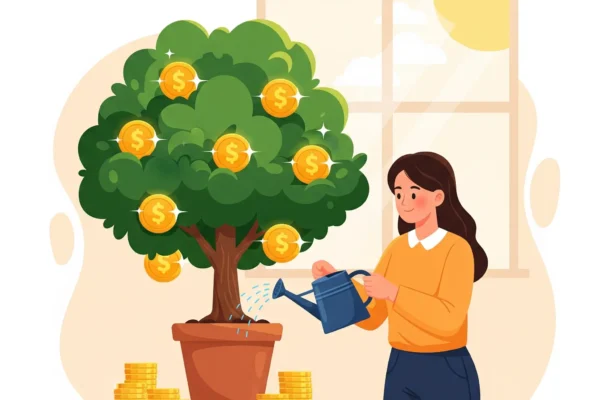

Hi my loved one! I want to say that this article is amazing, nice written and come with approximately all important infos.
I’d like to see more posts like this .
Also visit my webpage … invis name
Thank you for the nice comment. There are a lot of articles for you to read here.
Pretty part of content. I just stumbled upon your web site and in accession capital to claim that I acquire actually loved
account your weblog posts. Any way I’ll be subscribing on your
feeds and even I achievement you get admission to consistently
quickly.
Hi to every body, it’s my first visit of this web site; this blog carries amazing and actually excellent stuff in favor of
readers.
Having read this I thought it was very informative. I appreciate
you spending some time and energy to put this information together.
I once again find myself spending a significant amount of time
both reading and posting comments. But so what, it was still worth it!
Good information. Lucky me I found your site
by accident (stumbleupon). I’ve book marked it for later!
Hi there would you mind stating which blog platform you’re using?
I’m looking to start my own blog in the near future but I’m having a difficult
time choosing between BlogEngine/Wordpress/B2evolution and Drupal.
The reason I ask is because your design seems different then most blogs and I’m looking
for something unique. P.S My apologies for getting off-topic but I had to ask!
there are many site creators out there and they all work well. Wix.com is a good one for blogging
Good day! Do you know if they make any plugins to safeguard against hackers?
I’m kinda paranoid about losing everything
I’ve worked hard on. Any recommendations?
It depends on what you what you need plugins for? there are many things out there that can use plugins.
My family members every time say that I am killing my time here at net, except I know I am getting know-how everyday by reading thes pleasant articles or reviews.
You can definitely see your skills within the article you write.
The sector hopes for even more passionate writers like
you who are not afraid to say how they believe.
At all times go after your heart.